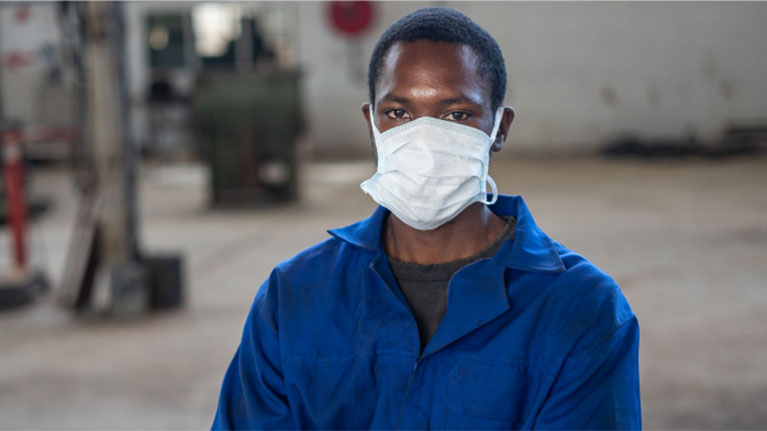
Even before the term COVID-19 had entered our vocabulary, burnout, stress and anxiety were significant issues in the workplace. With the pandemic, things have become much worse. In recent months many workers have felt helpless in the face of the profound changes they have experienced.
That’s why it’s so important to talk about mental health clearly and openly.
Teleworking has become the new normal. It has brought new stresses on workers, as they find themselves isolated or juggling family and professional responsibilities and experiencing blurred lines between their work life and personal life, while working from home. The phenomenon has been so sudden and so massive that no teleworking rules provide an adequate protection in this new workspace.

Frontline workers, such as health care and emergency workers but also those involved in the production of essential goods, in delivery and transportation, or in ensuring the security and safety of the population, are also facing many stressful situations as a result of the pandemic.
These past few months they have suffered Increased workloads, longer working hours, with almost no rest and with the constant fear of being infected at work and passing the virus to family, friends.
Many have also been physically attacked. One of several disturbing stories I’ve heard about was of a grocery shop owner in Pakistan who was beaten with sticks by customers over the shortage of flour in his store.
All this has deeply affected workers’ mental health and wellbeing.
On top of that, many are worried about losing their jobs. Mass layoffs are affecting all sectors of the economy. With unemployment at the highest level since the Great Depression it’s no wonder we all feel uncertain about the future.
Faced with this incredible level of uncertainty, workers may experience mood swings, low motivation, exhaustion, anxiety, depression, burnout and even suicidal thoughts. A range of physical reactions can also occur, such as digestive problems, changes to appetite and weight, dermatological reactions, fatigue, cardio-vascular disease, musculoskeletal disorders, headaches or other unexplained aches and pains. It can also lead to an increased use of tobacco, alcohol and drugs as a way of coping.

If not appropriately assessed and managed, these psychosocial risks can trigger or deepen distress and turn into real mental health problems.
To protect the well-being of workers during these times of crisis and change, the ILO has published a new guide for employees, employers and managers – “Managing work-related psychosocial risks during the COVID-19 pandemic”.
It contains ten areas for action in the workplace, both in times of lockdown and during the return to work.
The guide includes advice on how to organize the physical environment in the workplace, including layout and points of exposure to hazardous agents; how to assess the workload and work assignments in the specific context of COVID-19; how to deal with violence and harassment; and how strong and effective leadership can have a positive impact on employees.
It also tells workers how to protect themselves from unfair dismissal in situations where they refuse to work for fear that their life or health could be endangered.
Living through this pandemic is tough. Many of us have not been in this situation before. We have no rules or experience or role models to turn to. That’s why having guidelines and talking about mental health in the workplace is vital, in order to break the taboo.
